Featured
UK Lauds Wike On Education Dev …Wike Has Defined Good Governance -Sultan
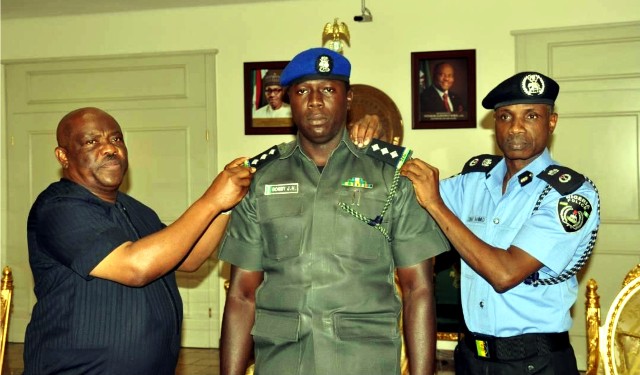
The British High Commissioner to Nigeria, Mr Paul Awkright has commended Rivers State Governor, Chief Nyesom Wike for investing in girl-child education, noting that no country can develop if it fails to educate her girls.
Speaking while commissioning Government Girls Secondary School, Rumuokwuta, last Saturday, Awkright called for greater investments in girl-child education.
He said: “There is no reason why we should neglect half of our population who can help ensure the prosperity of the country. That is why education is important. That is why girl child-education is important. Without girl-child education, this country cannot thrive”.
While thanking the people of Rivers State for their warm reception, he said he was genuinely pleased to be in the state which was the heart of the Niger Delta region.
“I am particularly pleased that I am here for the commissioning of a girl’s school. I have a daughter. I know how important it is to see girls educated. That they receive a minimum of 12 years of quality education.
“When they are educated, they marry later. When they marry later, they have fewer children. They can contribute to the economy. They can fulfill themselves”, the British high commissioner said.
“The joy in the air was contagious. Hundreds of students and old girls of Government Girls Secondary School, Rumuokwuta celebrated Wike’s golden touch to their institution.
They sang pro-Wike songs, danced and urged the Rivers State governor to sustain the delivery of quality education for all students.
Speaking at the event, Rivers State Governor, Chief Nyesom Wike stated that his administration was committed to quality education, hence the transformation of selected schools.
Wike noted that critical investments have been made to improve quality of teaching and learning in the interest of the development of the state.
He announced that the school would return to its old uniform, while the primary school would be fenced off from the secondary section.
“We will contract the maintenance of this school to members of the host communities. They will cut the grass and clean the environment of the school.
“We shall provide security in the school. Beginning Monday, nobody is allowed to trek across the school premises. This is a girl’s school and their security is paramount”, he said.
Wike warned the principal of the school against hiring out facilities of the institution for conferences, noting that boys would no longer be allowed to play football in the institution.
In a project description, Rivers State Education Commissioner, Dr Tamunosisi Gogo-Jaja said the school which was established in 1972, was allowed to decay beyond measures by previous administrations.
He said all the structures in the school were dilapidated, pointing out that the Wike administration demolished them and built new structures.
The education commissioner stated that the school has four new hostels, a major 960-seater Assembly Hall, sick bay, several science and other laboratories, sports facilities and new internal roads.
Meanwhile, the Rivers State Governor, Chief Nyesom Wike, last Saturday, decorated his recently promoted aide-de-camp (ADC), Haruna Bomby with his new rank of Deputy Superintendent of Police (DSP).
The governor was assisted during the decoration at the Government House, Port Harcourt by the Rivers State Commissioner of Police, Zaki Ahmed.
Wike congratulated his ADC on the elevation, and urged him to continue to serve dutifully.
Meanwhile, the Sultan of Sokoto, Alhaji Sa’ad Abubakar has declared that the Rivers State Governor, Chief Nyesom Wike has opened the eyes of Nigerians on the true meaning of good governance through the delivery of quality projects.
This is as the Rivers State Council of Traditional Rulers formally honoured Governor Nyesom Wike with the title: “The Pride of Rivers State” for his outstanding developmental strides.
Commissioning the Rivers State Council of Traditional Rulers’ Secretariat Complex constructed by the administration of Wike, last Friday, the Sultan of Sokoto christened the governor, “Mr Opener”.
He said: “We will continue to commend you as long as the people commend you. I call you ‘Mr Opener’ because you have opened eyes to what governance should be. What you are doing will endear you to the people”.
He noted that the transformation of Rivers State under the leadership of Wike was real, pointing out that most of the projects being commissioned as part of the Third Year Anniversary were inspected by traditional rulers after their national meeting in January, 2018.
“We saw these projects with our eyes, nobody told us. You cannot say that this governor has not worked. Even the enemies of progress will acknowledge that something is being done”, the Sultan said.
The Sultan of Sokoto noted that government was a process where the leader continues to do what is right, and praised Wike for doing what was right for Rivers people.
Abubakar urged the Rivers State governor to concentrate on agriculture, especially oil palm production when the people actualise their support for him next year.
He stated that no matter the situation, the votes of Rivers people must count and the people allowed to determine their leaders.
Speaking at the commissioning ceremony, Rivers State Governor, Chief Nyesom Wike said that his administration resolved to construct a befitting place where the traditional rulers would share ideas and contribute to the development of the state.
He said that his administration has worked closely with the traditional rulers to build peace which has led to the development of the state.
Wike said: “I will always give priority to the welfare of traditional rulers. The traditional rulers are key to the stability of the country”.
The governor said that his administration was committed to the delivery of projects, noting that the administration would continue to commission key projects irrespective of criticisms by the opposition.
He thanked the state traditional rulers for honouring him, adding that the honour would spur him to greater service.
Chairman of Rivers State Council of Traditional Rulers and Amayanabo of Opobo, King Dandeson Douglas-Jaja said the secretariat would serve as a centre to preserve culture and tradition of the people of the state.
Also speaking, Eze Ekpeye Logbo, Eze Robinson O. Robinson stated that Rivers people would re-elect the governor next year because of his planting of projects across the state.
Mayor of Port Harcourt City Local Government Area, Victor Ihunwo assured the Rivers State governor that the residents of the area would re-elect him.
Special Adviser on Special Projects to the Rivers State Governor, Alabo George Kerley said the secretariat was mid-wifed and delivered by Wike, adding that the facilities in the structure would enhance the deliberations of the traditional rulers.
Featured
Rivers A Strategic Hub for Nigeria’s Blue Economy -Ibas …Calls For Innovation-Driven Solutions
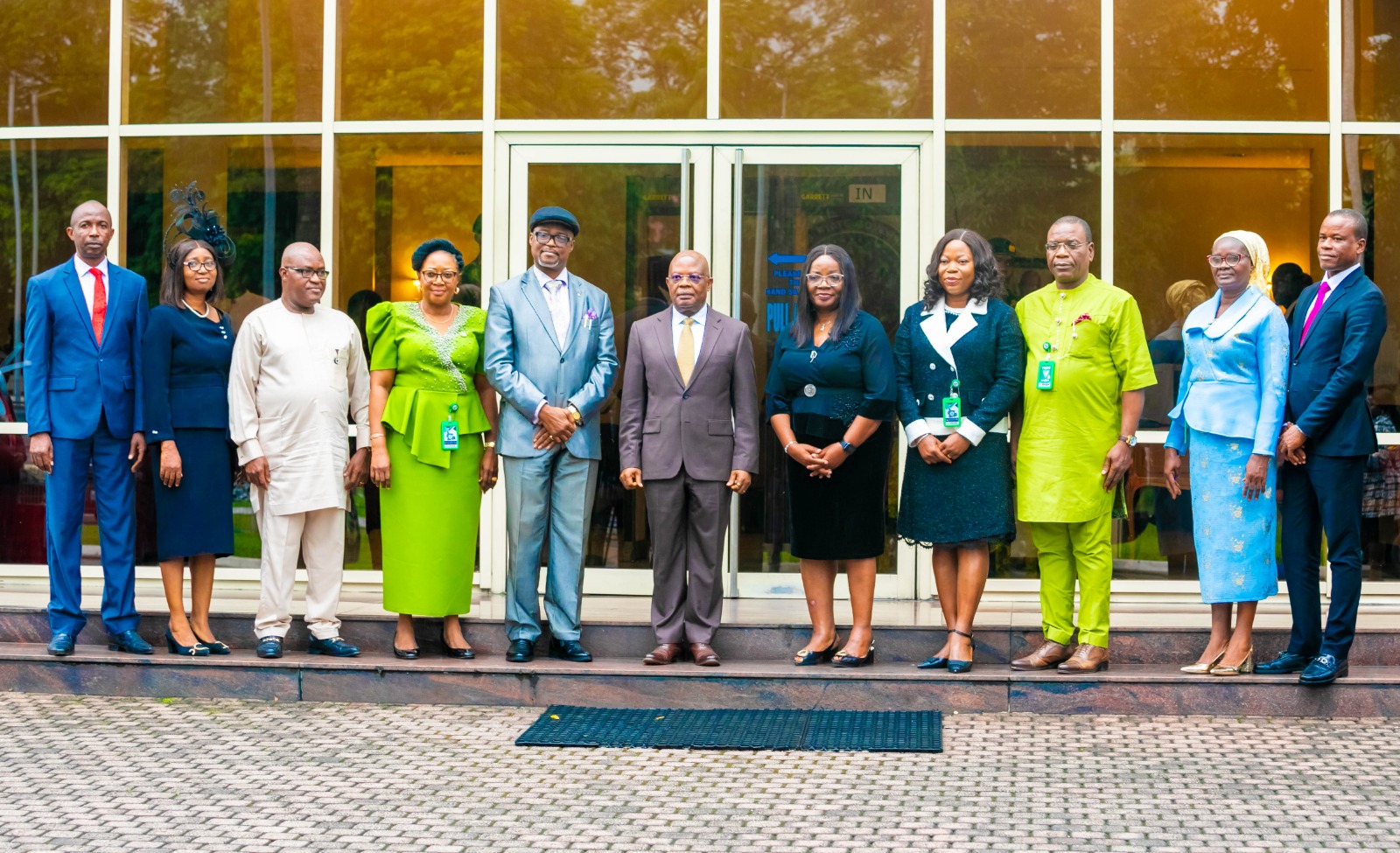
The Administrator of Rivers State, Vice Admiral (Rtd.) Ibok-Ete Ibas, has emphasized the need for innovation-driven strategies, strategic partnerships, and firm policy implementation to fully harness the vast potential of the blue economy.
Speaking during a courtesy visit by participants of Study Group 7 of the Executive Course 47 from the National Institute for Policy and Strategic Studies (NIPSS) at Government House, Port Harcourt, on Monday, Ibas highlighted the importance of diversifying Nigeria’s economy beyond oil by leveraging maritime resources to create jobs, enhance food security, strengthen climate resilience, and generate sustainable revenue.
The Administrator, according to a statement by his Senior Special Adviser on Media, Hector Igbikiowubo, noted that with coordinated efforts and innovative solutions, the blue economy could serve as a catalyst for inclusive growth, economic stability, and long-term environmental sustainability.
“It is estimated that a fully developed blue economy could generate over $296 million annually for Nigeria, spanning fisheries, shipping and logistics, marine tourism, offshore renewable energy, aquaculture, biotechnology, and coastal infrastructure,” he stated.
“We must transition from extractive practices to regenerative, inclusive, and innovation-driven solutions. This requires political cohesion, intergovernmental collaboration, robust infrastructure, and institutional capacity—all of which must be pursued with urgency and intentionality,” he added.
Ibas urged sub-national governments, particularly coastal states, to domesticate the national blue economy framework and develop tailored strategies that reflect their comparative advantages.
He stressed that such efforts must be guided by disciplined planning, regulation, and investment to maximize the sector’s potential.
Highlighting Rivers State’s pivotal role, the Administrator outlined its strategic advantages as follows:
•Nearly 30% of Nigeria’s total coastline (approximately 853km)
•Over 40% of Nigeria’s crude oil and gas output
•More than 33% of the country’s GDP and foreign exchange earnings
•416 of Nigeria’s 1,201 oil wells, many located in marine environments
•Two of Nigeria’s largest seaports, two oil refineries, and the Nigerian Liquefied Natural Gas (NLNG) terminal in Bonny Island—one of Africa’s most advanced gas facilities
Despite these opportunities, Ibas acknowledged challenges such as pollution, coastal erosion, illegal oil refining, unregulated fishing, inadequate infrastructure, and maritime insecurity.
He reaffirmed his administration’s commitment to institutional reforms, coastal zone management, and inter-agency collaboration to build a governance structure that supports a sustainable blue economy.
“Sustainability must be embedded in our development models from the outset, not as an afterthought. We are actively exploring partnerships in maritime education, aquaculture development, port modernization, and renewable ocean energy. We welcome knowledge-sharing engagements like this to refine our strategies and enhance implementation,” he said.
He urged the NIPSS delegation to ensure their findings translate into actionable recommendations that address the sector’s challenges.
Leader of the delegation, Vice Admiral A.A. Mustapha, explained that the visit aligns with their strategic institutional tour mandate on the 2025 theme: “Blue Economy and Sustainable Development in Nigeria: Issues, Challenges, and Opportunities.”
The group is engaging stakeholders to deepen understanding of policy efforts and institutional roles in advancing sustainable development through the blue economy.
Featured
INEC To Unveil New Party Registration Portal As Applications Hit 129

The Independent National Electoral Commission (INEC) has announced that it has now received a total of 129 applications from associations seeking registration as political parties.
The update was provided during the commission’s regular weekly meeting held in Abuja, yesterday.
According to a statement signed by the National Commissioner and Chairman of the Information and Voter Education Committee, Sam Olumekun, seven new applications were submitted within the past week, adding to the previous number.
“At its regular weekly meeting held today, Thursday 10th July 2025, the commission received a further update on additional requests from associations seeking registration as political parties.
“Since last week, seven more applications have been received, bringing the total number so far to 129. All the requests are being processed,” the commission stated.
The commission revealed the introduction of a new digital platform for political party registration. The platform is part of the Party Financial Reporting and Auditing System and aims to streamline the registration process.
Olumekun disclosed that final testing of the portal would be completed within the next week.
“INEC also plans to release comprehensive guidelines to help associations file their applications using the new system.
“Unlike the manual method used in previous registration, the Commission is introducing a political party registration portal, which is a module in our Party Financial Reporting and Auditing System.
“This will make the process faster and seamless. In the next week, the commission will conclude the final testing of the portal before deployment.
“Thereafter, the next step for associations that meet the requirements to proceed to the application stage will be announced. The commission will also issue guidelines to facilitate the filing of applications using the PFRAS,” the statement added.
In the meantime, the list of new associations that have submitted applications has been made available to the public on INEC’s website and other official platforms.
Featured
Tinubu Signs Four Tax Reform Bills Into Law …Says Nigeria Open For Business

President Bola Tinubu yesterday signed into law four tax reform bills aimed at transforming Nigeria’s fiscal and revenue framework.
The four bills include: the Nigeria Tax Bill, the Nigeria Tax Administration Bill, the Nigeria Revenue Service (Establishment) Bill, and the Joint Revenue Board (Establishment) Bill.
They were passed by the National Assembly after months of consultations with various interest groups and stakeholders.
The ceremony took place at the Presidential Villa, yesterday.
The ceremony was witnessed by the leadership of the National Assembly and some legislators, governors, ministers, and aides of the President.
The presidency had earlier stated that the laws would transform tax administration in the country, increase revenue generation, improve the business environment, and give a boost to domestic and foreign investments.
“When the new tax laws become operational, they are expected to significantly transform tax administration in the country, leading to increased revenue generation, improved business environment, and a boost in domestic and foreign investments,” Special Adviser to the President on Media, Bayo Onanuga said on Wednesday.
Before the signing of the four bills, President Tinubu had earlier yesterday, said the tax reform bills will reset Nigeria’s economic trajectory and simplify its complex fiscal landscape.
Announcing the development via his official X handle, yesterday, the President declared, “In a few hours, I will sign four landmark tax reform bills into law, ushering in a bold new era of economic governance in our country.”
Tinubu made a call to investors and citizens alike, saying, “Let the world know that Nigeria is open for business, and this time, everyone has a fair shot.”
He described the bills as not just technical adjustments but a direct intervention to ease burdens on struggling Nigerians.
“These reforms go beyond streamlining tax codes. They deliver the first major, pro-people tax cuts in a generation, targeted relief for low-income earners, small businesses, and families working hard to make ends meet,” Tinubu wrote.
According to the President, “They will unify our fragmented tax system, eliminate wasteful duplications, cut red tape, restore investor confidence, and entrench transparency and coordination at every level.”
He added that the long-standing burden of Nigeria’s tax structure had unfairly weighed down the vulnerable while enabling inefficiency.
The tax reforms, first introduced in October 2024, were part of Tinubu’s post-subsidy-removal recovery plan, aimed at expanding revenue without stifling productivity.
However, the bills faced turbulence at the National Assembly and amongst some state governors who rejected its passing in 2024.
At the NASS, the bills sparked heated debate, particularly around the revenue-sharing structure, which governors from the North opposed.
They warned that a shift toward derivation-based allocations, especially with VAT, could tilt fiscal balance in favour of southern states with stronger consumption bases.
After prolonged dialogue, the VAT rate remained at 7.5 per cent, and a new exemption was introduced to shield minimum wage earners from personal income tax.
By May 2025, the National Assembly passed the harmonised versions with broad support, driven in part by pressure from economic stakeholders and international observers who welcomed the clarity and efficiency the reforms promised.
In his tweet, Tinubu stressed that this is just the beginning of Nigeria’s tax evolution.
“We are laying the foundation for a tax regime that is fair, transparent, and fit for a modern, ambitious Nigeria.
“A tax regime that rewards enterprise, protects the vulnerable, and mobilises revenue without punishing productivity,” he stated.
He further acknowledged the contributions of the Presidential Fiscal Policy and Tax Reform Committee, the National Assembly, and Nigeria’s subnational governments.
The President added, “We are not just signing tax bills but rewriting the social contract.
“We are not there yet, but we are firmly on the road.”
-
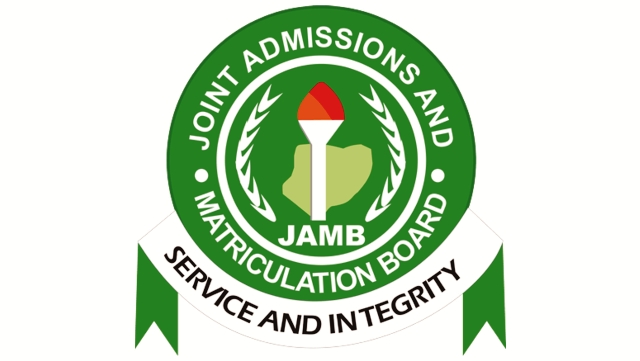
 News6 hours ago
News6 hours agoJAMB Uncovers 9,469 Fake Admissions In 20 Tertiary Institutions
-
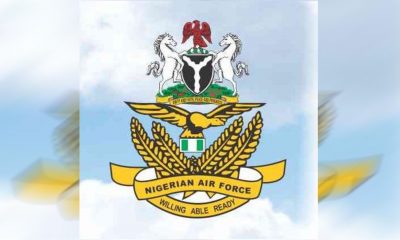
 News6 hours ago
News6 hours agoNAF Disowns Recruitment Adverts, Says It’s Fake
-
Rivers7 hours ago
Okrika Administrator Seeks To Connect Okujagu Ama To National Grid … Donates 30 Life Jackets To Okujagu Ama Boat Drivers
-
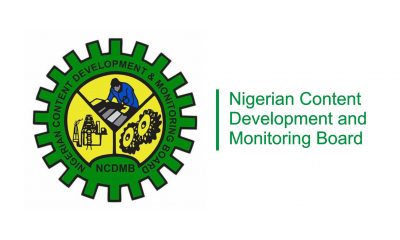
 Business4 hours ago
Business4 hours agoNCDMB, Dangote Refinery Unveil JTC On Deepening Local Content
-
Politics6 hours ago
Natasha’s Counsel Writes Senate Over Court Judgment
-

 Politics5 hours ago
Politics5 hours agoINEC Trains Political Parties Officials On ICNP Use Ahead By-Elections
-
Politics7 hours ago
Bayelsa APC Hails Late Buhari As Change Agent In Nigerian Politics
-
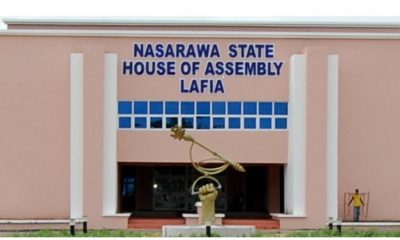
 Politics4 hours ago
Politics4 hours agoNasarawa Speaker Advocates Conducive Executive/Legislature Relations

